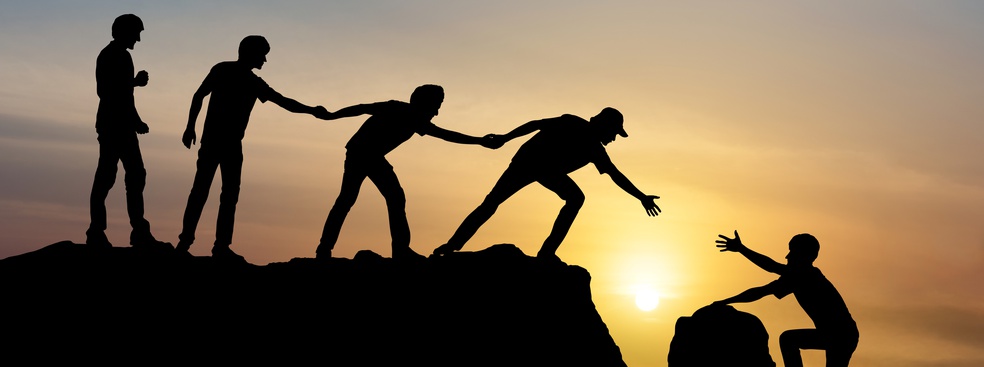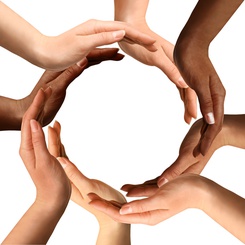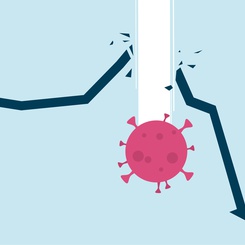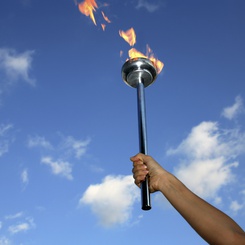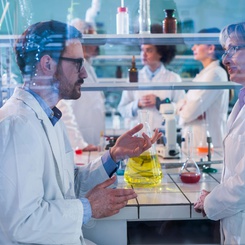In times of crisis, it is essential to have the best possible tools at our disposal to face the crisis together.
A fire-fighter with exceptional efficiency
First, a few comments about a firefighter interviewed by researcher Karl Weick on his method. This firefighter was called Paul Gleason. He was known by his peers in the United States where he worked, recognized for his exceptional ability to contain and extinguish even the trickiest of fires. When he was interviewed by Weick, Gleason stated, “I never make decisions!”, elaborating further to an astonished Weick:
“If I make a decision it is a possession. I take pride in it, I tend to defend it and not listen to those who question it. If I make sense, then this is more dynamic, and I listen and I can change it. A decision is something you polish. Sensemaking is a direction for the next period.” [1]
Gleason’s argument is twofold: if a leader forces themselves to take the right decision, they lose time in trying to polish and perfect it, which is counterproductive in an emergency. The second counterproductive effect of a decision is that the decision-maker is attached to it, because they believe their decision should be the right one. Any change can thus be seen as a blow to their competence, by the decision-maker themselves and by their teams.
Settling for interpreting the reality and testing immediate responses, based of course on intuitions born of experience and expertise, and always being ready to act and change one’s approach, enables an increased collective capacity to react to the emergency. In other words, we can ascribe the extraordinary agility of Gleason and his teams to their expertise backed by experience and to confident teams with a leader who is willing to engage in discussions with them and change tactics if necessary.
We can stand to learn something fundamental from Gleason’s pragmatism.
What is “Jugaad”?
In ancient Hindu culture, there is a concept based on a similar pragmatism. It is called “Jugaad”, meaning the capacity to manage adversity together even with a lack of resources. Crisis situations typically “impoverish” in a sense, as they are situations where standard protocols and tools do not work. Crisis situations like the one we are experiencing create totally new and previously unimaginable situations. They are close to what the political philosopher would call “infigurable”: situations that are unimaginable in advance and highly uncertain. While the current pandemic is obviously a catastrophe, the unimaginable is not necessarily all doom and gloom: crisis situations tend to unleash new possibilities that may not be so bad, and some that are quite the opposite. Already we are witnessing the launch of extraordinary initiatives that we never would have predicted, like the transformation of a pizza production chain into one that produces hand sanitizer. That represents “Jugaad” perfectly: making something out of nothing due to the requirements of the crisis, and doing it together.
It is by working together that we will prevail
This is the second important takeaway that needs to be stressed here: it is together that we will come up with responses and overcome the crises that are impoverishing the world. Far from this becoming a time of conflict born of the anguish and fear that we are experiencing, having “Jugaad” in our minds and hearts can help us be ready to fight together and become better for it: that is to say, that we will all become equipped with the necessary tools to triumph over the crisis.
It is a sign that, in ancient Greece, the god of trade and relationships, Hermes, is very close to Eros, the god of love. In Plato’s Banquet, Diotime says that love is the “child of poverty and practicality”. This is exactly the meaning of “Jugaad”: social ties, relationships, and love are the children of poverty, and as they have to manage in poverty, they are also the children of practicality. This is why it is doubtless essential to understand the world of trade: as we know all too well, this world can present an unsavory aspect of liberation from greed and selfishness. If we look at this world in a different way, trade is not just about economics and finance and wanting to increase one’s profits with little regard for the world we live in. We can also look at this in another way: “trade” is also about teamwork, carried out in adversity or poverty but pragmatically, with leaders who change their minds if need be without feeling or being discredited by their teams.
If we are to abide by the principles of “Jugaad”, this means that we must collaborate on an international level and that everyone, from citizens, to public health experts, to political leaders, must listen to one another and consider alternative solutions.
For example, there is currently much discussion about the effectiveness of hydroxychloroquine in treating Covid-19, a treatment touted by Donald Trump. Perhaps we can even say that the American president is not wrong (for once) in obtaining authorization to test hydroxychloroquine in American hospitals. Obviously, the tests are not conducted according to normal protocol - outside of crisis times - with comparisons of patients who were treated with the drug vs. with a placebo, etc. However, if hydroxychloroquine proves effective when administered by qualified professionals (and not outside of hospital settings by people who do not know how to take it, as has already occurred to disastrous effect), then a more widespread trial must be conducted and very attentively studied to see whether or not it works and under what conditions. While the verdict is not yet conclusive on hydroxychloroquine’s effectiveness, we can all learn a lesson from this: the search for the cure is one in which we do not hold all the answers and where pieces of the puzzle are still missing, but in living by “Jugaad” and being intrepid, resourceful, and collaborative, we can continue the efforts for containing, treating, and curing Covid-19, and together we will prevail.
References
[1] Weick. K., Organizing and the Process of Sensemaking, with David Obstfeld, Organization Science, Vol 16, n° 4, 2005.
